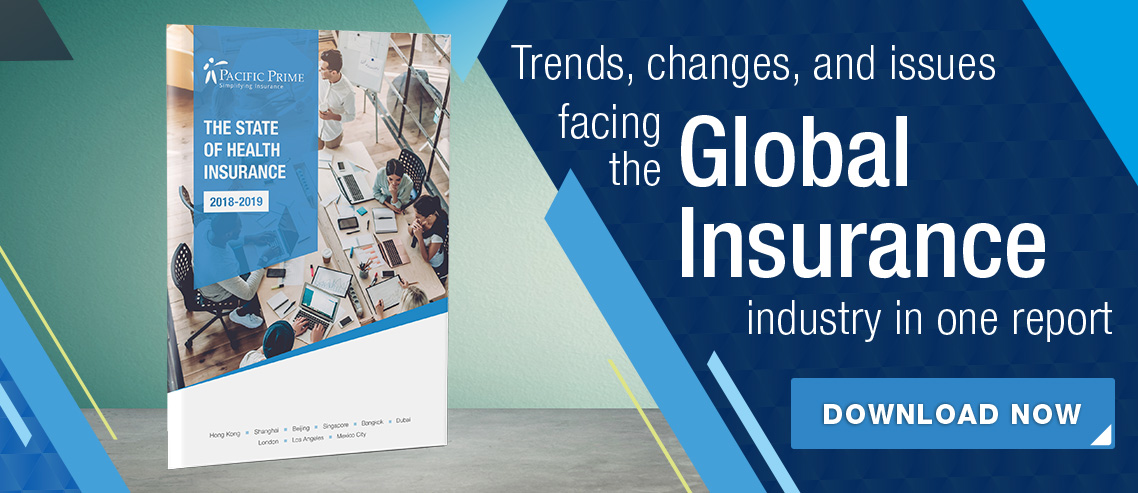Differences between private and public insurance in the United States
The United States is well known for its exorbitant medical costs. So much so that even international health insurance plans, which cover virtually every country in the world, often exclude America due to its high costs. While about 58 percent of the US population has private health insurance to take care of their health needs, the debate over whether public or private insurance is more economically efficient seems endless, especially since the institutional reform of the Affordable Care Act (a.k.a. Obamacare) in 2010. Today, we at Pacific Prime present the below information on the differences between public and private hospitals in the United States.
Public health care coverage
Public health insurance plans are plans provided by the government for low-income individuals or families, the elderly, and other individuals that qualify for special subsidies. The primary public health programs in the US are Medicare, Medicaid, and CHIP.
Medicare
Medicare is a federal social insurance program for seniors (generally persons aged 65 and over), and certain disabled individuals. With the aging population, the costs of Medicare are projected to rise, so The Affordable Care Act has taken some steps to reduce the burden on Medicare.
Medicaid
Medicaid, which covers millions of very low-income children and their families, is funded jointly by the federal government and states, but is administered at the state level. The Affordable Care Act dramatically expanded Medicaid, so that everyone with an income under 133% of the federal poverty level who does not qualify for Medicare will be covered.
Children’s Health Insurance Program (CHIP)
CHIP is a federal-state partnership that serves certain children and families who do not qualify for medical assistance, but cannot afford private coverage. This program aims to supplement the coverage gaps between Medicaid and private insurance.
The pros and cons of public health insurance
Public health insurance is surely more affordable than its private counterpart, as it often requires no co-pays or deductibles, and has lower administrative costs than private health insurance.
However, public health insurance is at the same time less flexible, as policyholders are often given a limited selection of medical service providers. This is because a lot of medical establishments still refuse to accept government-sponsored health insurance plans. Furthermore, even if a therapy is deemed necessary, it may not be reimbursed by public health insurance.
Private health care coverage
Private health insurance refers to plans provided by private companies, and are often provided by an employer or other organization with which the policyholder is affiliated. It can be purchased on a group basis or by individual consumers. Currently, a majority of Americans receive their health coverage through private health insurance plans.
Employer-sponsored
Provided to employees as a benefit of employment, employer-sponsored health insurance is typically more generous than public healthcare insurance programs like Medicare. Since 2015, Obamacare has mandated that all employers with over 50 full-time employees should provide affordable health coverage to employees in order to avoid a tax penalty. However, workers who receive employer-sponsored insurance tend to be paid less in wages, due to the insurance premiums paid by the employer.
Individual health insurance
Individual health insurance plans are plans purchased for yourself or your family through no association with an employer or other organization. The costs of these plans may vary greatly, depending on what kind of plan you choose and what benefits you receive, but overall, individual health insurance plans tend to cost less than group insurance plans.
The pros and cons of private health insurance
Private health insurance policies are more flexible than group policies, and give the policyholders more options as to which doctor or medical facility to visit. There are also more plan choices on the market, so policyholders have more plans and a wider network of providers to choose from.
Having said that, private health insurance plans have a heftier price tag than public health insurance. Furthermore, unlike public health insurance, private health insurance requires you to pay a monthly/yearly premium, which is not something everyone can afford.
More professional insurance advice for your reference
If you would like to supplement the coverage gaps of public insurance policies with a private health insurance product, you will be faced with countless insurance solutions being available to the market. Since it can be difficult to get your head around the obscure terms and conditions in insurance policies, it can be very beneficial to engage the services of a professional insurance intermediary. With over 19 years of experience and nine offices around the world, Pacific Prime is well-versed in matching clients with plans that best match their needs. Besides this, our team of experts publishes weekly blog posts, reports and guides to achieve the goal of simplifying insurance. Contact us today for impartial insurance advice, and an obligation-free quote and plan comparison!


